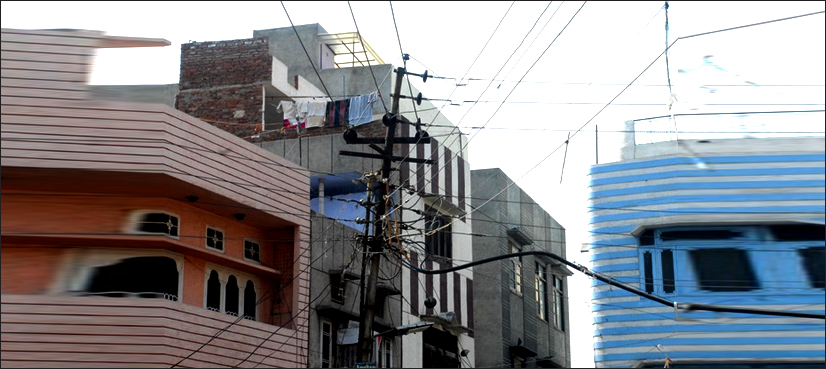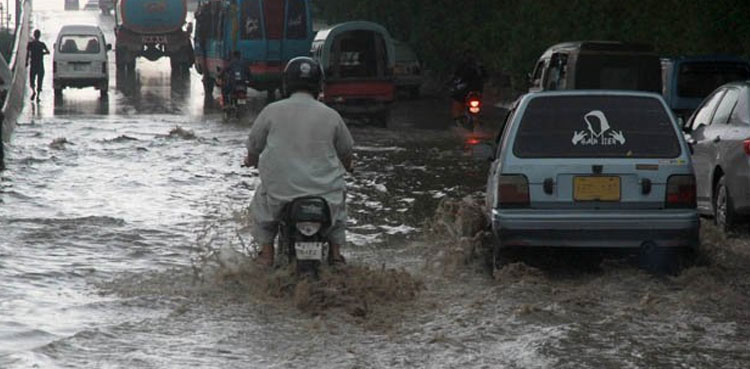Electrical safety tips for the monsoon season
- By Web Desk -
- Jun 07, 2023

The beginning of June brings an increased interest in weather forecasts, as Karachi’s monsoon season comes around the corner. The past 2 years have been sporadic and extreme 223.5 mm (8.7 inches) of rain fell in just 12 hours in 2020 which was a record-breaking occurrence in 52 years.
Combined with Karachi’s urban challenges, rain also elevates the danger to people at large.
Here are a few suggestions that can help you and your loved ones stay safe and avoid electrical hazards.

Check your Electric switches and internal wiring
Rain or no rain, the first step to safety begins with the switches and wiring inside your house. Make sure that switches which are not in regular use and may come into contact with water are inspected periodically to confirm there is no leakage of current, which could result in a shock. Always be careful touching switches with wet hands, especially in bathrooms. Better to use your elbow if your hands are wet.
Also check the circuit breakers and your distribution board to replace any worn out items. Insulate all wires and switches. It only takes a few minutes to seek assistance from a trained electrician to fix your issue which could protect you from serious accidents. In some cases, people keep reusing damaged extension wires post temporary fixes. Avoid this at all costs because this too can turn out to be extremely risky.
Damaged ceilings
In older constructions, rainwater can seep through the roof into the walls, which can interfere with the electrical wiring as well. Residents who live on the top floor of buildings or houses face the issue of dripping ceilings as rainwater may collect on rooftops.
It’s recommended to get waterproofing done as soon as possible. If the water is passing through electrical switch boards or openings of electric items such as fans or light connections on the ceiling, then immediate action must be taken to add shades on the roof top and rubber slippers should be worn around these places at home.
Water motors
Do not use appliances, especially water motors or electric switches with wet hands or feet and avoid using appliances that are exposed to rain or water in general. Ideally, water motors should be placed at a height on concrete platforms which protects them from groundwater and prevents the conduction of electricity These appliances are among the leading causes of hazardous incidences in large cities.
Make sure that you always hire skilled electricians who conceal and insulate wiring properly in order to maintain safety and avoid taking risks with something you may not be skilled to fix.

Encroachments and loose hanging wires
Estimates suggest that as much as 40% of Karachi is unplanned. This haphazard mushroom growth in the city has led to several problems including that of encroachment. Constructions are illegally extended to dangerously close levels with streetlight poles and utility infrastructure. Bunches of TV and internet cables also hang loosely from all poles and buildings, obscuring the view and creating a hazard.
These additional cables sometimes carry booster devices which can carry current even if there is no power in the area. It is imperative that if you spot such instances, you should request your local government authorities so that they can take immediate action to remove the hazards.
Suspicious activity around electricity infrastructure
Unfortunately, theft is another major challenge of living in large cities like Karachi. the use of “kundas” or illegal hook connections to steal electricity is one such phenomenon. Overcoming this challenge requires our collective action as a community.
If you see any instances of power theft through hook connections on electricity poles and wires, and around electricity substations, contact your utility service. Also, keep writing and requesting your elected representatives to take action against power theft to keep communities and people safe.

Inundation by rainwater
Rain in Karachi frequently results in urban flooding and waterlogging. Take precautionary measures to keep your home safe, and remember that your utility may shut down power supply to your area if the waterlogging poses a risk to the residents. If you notice sparking on your power lines, or God forbid a broken wire, call 118 immediately to report the hazard for the utility to take immediate action.
Emergency First Aid
Knowing how to administer first aid is an essential life skill. Take the time to learn how to handle different situations, including if someone experiences an electric shock. Remember to ensure your own safety first and try locating the source of the current to disconnect it safely, for instance, turning the main switch off. If that is not the case, then try getting hold of a non-conducting object such as a piece of wood to drag the person away from the power source. Call for medical assistance immediately, especially a lifesaving ambulance, such as the Sindh Rescue and Medical Services that can be contacted on 1021. In the meanwhile, check the person’s vitals. If they are not breathing, begin CPR until help arrives.
